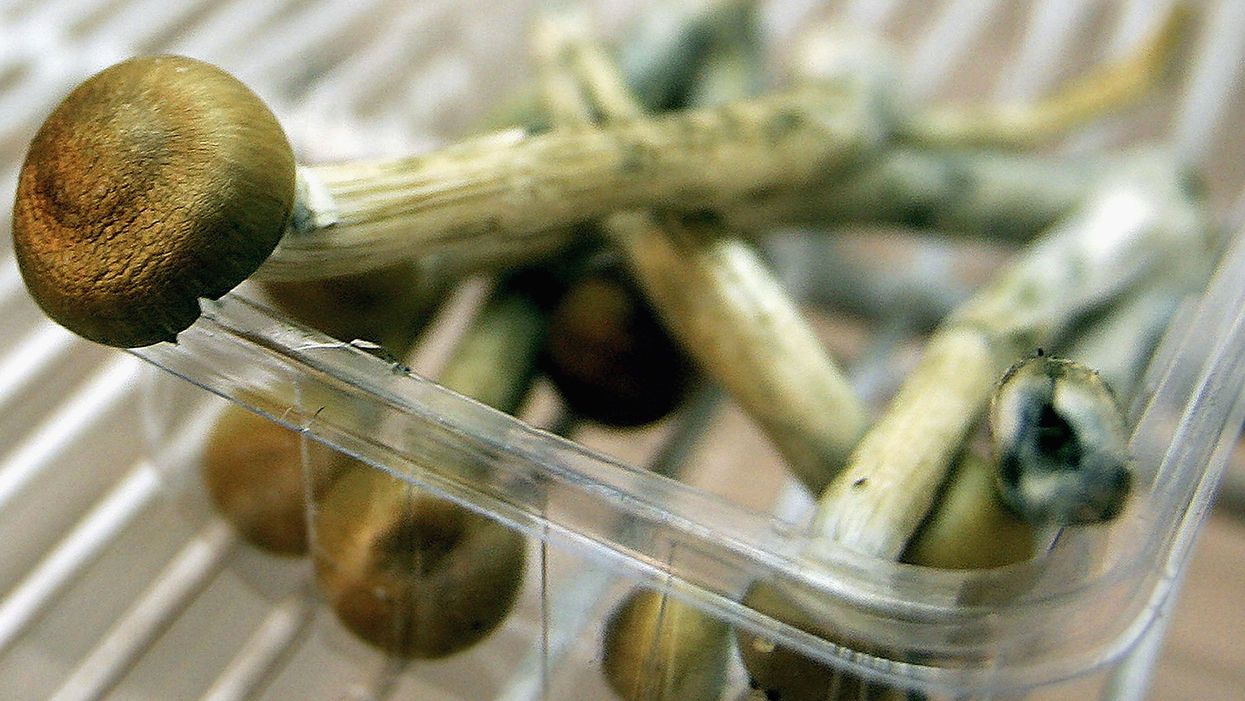
The compound found in magic mushrooms could be used in the future to treat depression.
The psychedelic compound found in magic mushrooms, psilocybin, is just as effective as a leading antidepressant medication in reducing symptoms of depression, a new study suggests.
It is among one of the first studies to compare the psychedelic head-to-head with a traditional depression treatment.
In the trial, 59 participants with moderate to severe depression were either given a six-week course of the compound or a common antidepressant, escitalopram - also known as selective serotonin reuptake inhibitor (SSRI).
Participants that were given psilocybin received two relatively high doses of the drug, three weeks apart, while participants in the escitalopram group took that pill every day for six weeks.
The scientists from Imperial College London’s Centre for Psychedelic Research used different methods to measure participants’ mood and functioning.
Read more:
- Tesco shopper ordered apples but got an iPhone in his delivery
- Woman discovers she is related to her boyfriend after taking a DNA test
- Reddit just realized that Jerry Seinfeld’s TV apartment defies the laws of science
- TikTok user reveals ‘dirty’ meaning behind ‘Macarena’ and people’s childhoods are ruined
- 20 jokes only very intelligent people will understand
Scoring people’s symptoms of depression based on their answers to questions about sleep, energy, appetite, mood and suicidal thoughts was the main measure that was used.
The questions asked were negative, e.g. asking a participant if they were feeling sad, rather than asking them if they were feeling happy.
Psilocybin performed as well as a conventional antidepressant in this particular area and depression scores were reduced in both groups.
But the psychedelic drug outperformed the conventional antidepressant in other areas such as measures of work and social functioning, mental well-being and the ability to feel happy.
People treated with psilocybin also showed improvements their ability to feel pleasure, and express emotions, greater reductions in anxiety and suicidal ideation.
Dr Robin Carhart-Harris, head of the Centre for Psychedelic Research at Imperial College London, who designed and led the study, said: “One of the most important aspects of this work is that people can clearly see the promise of properly delivered psilocybin therapy by viewing it compared with a more familiar, established treatment in the same study.
“Psilocybin performed very favourably in this head to head.”
However, larger trials with more patients over a longer period are needed to show if the compound can perform as well as, or more effectively than, an established antidepressant.
The most common side-effect of the magic mushroom compound was headaches experienced one day after dosing sessions.
Though, the psilocybin group reported fewer cases of dry mouth, anxiety, drowsiness and sexual dysfunction than the escitalopram group.
The authors warned that patients with depression should not attempt to self-medicate with psilocybin as the team provided a special clinical and therapeutic context, taking the compound without this support could led to a bad outcome.
Anthony Cleare, professor of psychopharmacology and affective disorders, Institute of Psychiatry Psychology and Neuroscience, King’s College London, said: “We need much more data before these treatments could be considered ready for use outside of carefully controlled research studies.
“In particular, we do not yet know which types of patients, and which types of depression, may be best suited for psychedelic treatments.
“We also do not know how long benefits last and whether or how often treatments may need to be repeated.”












